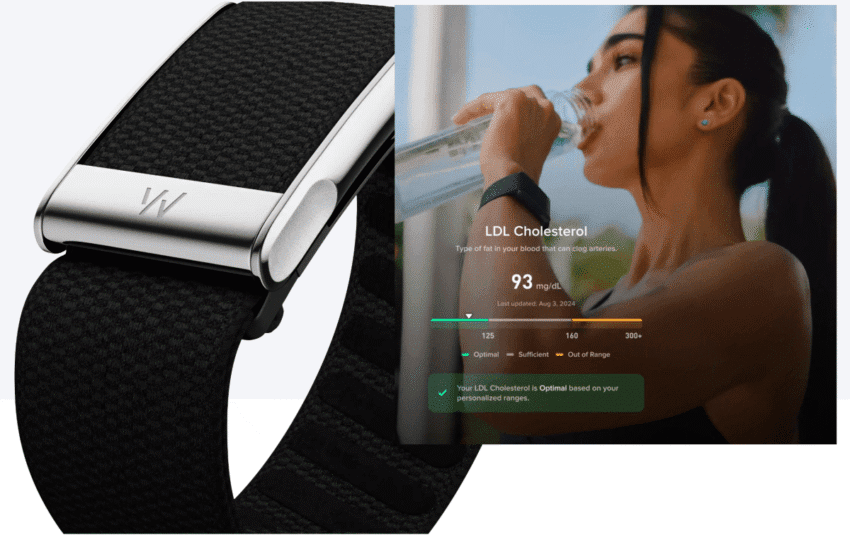
whoop opens blood-testing service to what it Whoop has officially launched its blood-testing service, catering to a waitlist of 350,000 individuals eager to integrate advanced health monitoring into their fitness routines.
whoop opens blood-testing service to what it
Overview of Whoop’s Blood-Testing Service
Whoop, a company known for its fitness tracking technology, has taken a significant step forward by introducing its blood-testing service through Whoop Advanced Labs. This service aims to provide users with a comprehensive understanding of their health by combining blood test results with data collected from Whoop’s wearable fitness devices. The initiative is designed to empower users with personalized wellness advice, leveraging both biometric data and lab results to enhance overall health management.
The Concept Behind Whoop Advanced Labs
The integration of subscription-based blood tests with Whoop’s existing fitness monitoring capabilities represents a novel approach to health and wellness. By analyzing blood samples, Whoop aims to deliver insights that can help users optimize their physical performance and overall well-being. This service is particularly appealing to fitness enthusiasts and health-conscious individuals who are increasingly seeking data-driven solutions to improve their lifestyles.
Whoop’s blood-testing service is not just about providing test results; it also emphasizes actionable insights. Users will receive personalized recommendations based on their blood test outcomes, which can include dietary adjustments, exercise modifications, and other lifestyle changes. This holistic approach aims to bridge the gap between fitness tracking and medical diagnostics, offering a more rounded perspective on health.
How the Service Works
The process for utilizing Whoop’s blood-testing service is designed to be user-friendly and efficient. Here’s how it works:
- Subscription Model: Users can subscribe to the blood-testing service, which will provide them with regular access to blood tests.
- Sample Collection: Blood samples can be collected at home using a simple kit provided by Whoop, making it convenient for users to participate without the need for a clinical visit.
- Analysis and Reporting: Once the samples are sent to the lab, they are analyzed, and results are generated. Users can access their results through the Whoop app.
- Personalized Insights: The app will provide tailored recommendations based on the results, integrating this information with existing fitness data to offer a comprehensive view of the user’s health.
Types of Tests Offered
Whoop’s blood-testing service includes a variety of tests that can assess different aspects of health. Some of the key tests offered are:
- Vitamin Levels: Assessing essential vitamins such as D, B12, and others that play crucial roles in overall health.
- Hormone Levels: Monitoring hormones that can affect mood, energy, and physical performance.
- Inflammatory Markers: Identifying markers that may indicate chronic inflammation, which is linked to various health issues.
- Metabolic Health: Evaluating cholesterol levels, glucose levels, and other indicators of metabolic function.
By offering a diverse range of tests, Whoop aims to cater to the varied health interests of its user base, allowing individuals to focus on specific areas of concern or interest.
Market Context and Competitive Landscape
The launch of Whoop’s blood-testing service comes at a time when the health and wellness industry is increasingly embracing technology. Wearable fitness devices have gained popularity, and consumers are becoming more aware of the importance of health data. Companies like Fitbit, Apple, and Garmin have also ventured into health monitoring, but Whoop’s unique combination of fitness tracking and blood analysis sets it apart.
In recent years, the demand for at-home health testing has surged, fueled by the COVID-19 pandemic and a growing interest in preventive health measures. Consumers are looking for ways to take control of their health, and services that offer convenience and actionable insights are in high demand. Whoop’s blood-testing service aligns perfectly with this trend, providing a seamless integration of fitness and health diagnostics.
Stakeholder Reactions
The announcement of Whoop’s blood-testing service has elicited a range of reactions from stakeholders in the health and fitness industry. Many fitness enthusiasts have expressed excitement about the potential for personalized health insights, viewing the service as a valuable addition to their wellness routines. The ability to receive tailored recommendations based on both fitness data and blood test results is seen as a game-changer for those committed to optimizing their health.
Healthcare professionals have also weighed in on the service. Some have praised the initiative for encouraging individuals to take a proactive approach to their health. However, there are concerns regarding the interpretation of blood test results and the potential for users to misinterpret data without proper medical guidance. Experts emphasize the importance of consulting healthcare providers when making significant lifestyle changes based on test results.
Implications for Health and Wellness
The introduction of Whoop’s blood-testing service has broader implications for the health and wellness landscape. As more companies explore the intersection of technology and health, the potential for personalized medicine becomes increasingly viable. This shift could lead to a greater emphasis on preventive care, with individuals taking a more active role in managing their health.
Moreover, the integration of fitness tracking and blood analysis may pave the way for more comprehensive health monitoring solutions. As technology continues to evolve, we may see further advancements in how data is collected, analyzed, and utilized to inform health decisions. This could ultimately lead to improved health outcomes and a more informed public.
Challenges Ahead
Despite the promising outlook for Whoop’s blood-testing service, several challenges remain. One significant hurdle is ensuring the accuracy and reliability of test results. As with any medical testing service, maintaining high standards for lab analysis is crucial. Any discrepancies in results could undermine user trust and the overall effectiveness of the service.
Additionally, regulatory considerations will play a vital role in the service’s success. As Whoop navigates the complexities of health regulations, it must ensure compliance with relevant laws and guidelines. This includes safeguarding user data and ensuring that the service adheres to privacy standards.
Future Prospects
Looking ahead, Whoop’s blood-testing service has the potential to expand its offerings and reach a broader audience. As the company gathers data and feedback from users, it may refine its testing options and enhance the user experience. Future iterations of the service could include more advanced tests or features that further integrate with fitness tracking.
Moreover, partnerships with healthcare providers or wellness organizations could enhance the credibility and reach of the service. Collaborations may also facilitate access to a wider range of health resources, allowing users to make more informed decisions based on their test results.
Conclusion
Whoop’s launch of its blood-testing service marks a significant milestone in the intersection of technology and health. By combining fitness tracking with blood analysis, the company aims to empower users with personalized insights that can enhance their wellness journeys. As the demand for data-driven health solutions continues to grow, Whoop is well-positioned to lead the charge in this evolving landscape.
While challenges remain, the potential benefits of such a service are substantial. With a focus on accuracy, user education, and regulatory compliance, Whoop can pave the way for a new era of health monitoring that prioritizes individual empowerment and proactive health management.
Source: Original report
Was this helpful?
Last Modified: September 30, 2025 at 6:59 pm
2 views















